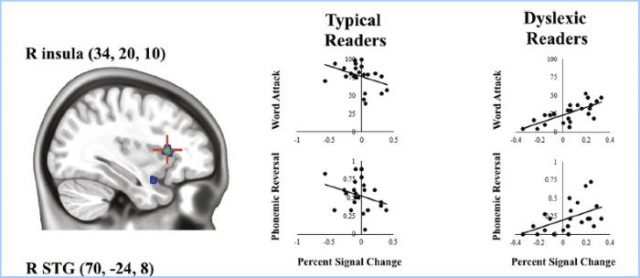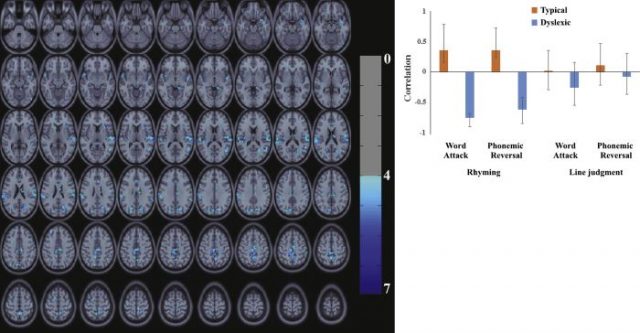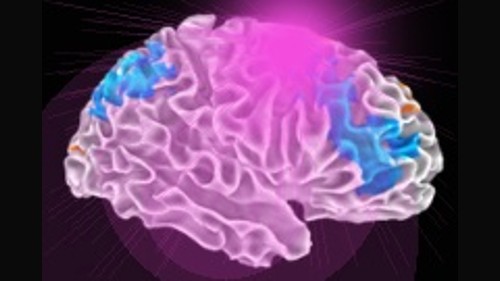Research Confirms Right-Brained Dyslexic Reading Strength
A newly published fMRI study conducted in New Zealand has confirmed that improved reading skills among dyslexic adults correspond with stronger right brain activation patterns. In a study called Reading network in dyslexia: Similar, yet different, the researchers explain: “Although the overall reading network was largely similar in dyslexics and typical readers, it did not correlate with behavior in the same way in the two groups.” They found that typical readers perform better when their brain scans showed greater reliance on left hemispheric activation, whereas dyslexics performed better when their thought processes showed greater inclusion of right hemispheric networks.
The research team explored two questions. First, they looked at differences in brain activation patterns during performance of a task of identifying rhyming words (for example, to identify whether “paste” rhymes with “waist.”). Secondly, they looked at how the overall pattern of brain activation during the rhyming tasks correlated with performance on other tests of reading performance, such as general word recognition skills.
There were no significant differences between dyslexic and non-dyslexic controls correlated to performance for the rhyming tasks. Both groups activated left-hemispheric regions in performing these tasks; and the presence or level of right brain activation did not correlate to any statistically significant differences in performance.
However, when the brain activation patterns during the rhyming tasks were compared to the research subject’s measured levels of reading proficiency, there was a very clear pattern. Dyslexics with higher levels of right hemispheric activation during the rhyming task tended to have better scores for word recognition and phonemic manipulation, whereas the inverse pattern was seen for typical non-dyslexic readers.

Additionally, to the researcher’s surprise, the brain imaging results showed that stronger reliance on left-hemispheric activation during the rhyming task was negatively correlated with other measures of reading ability for the dyslexic group. That is, for dyslexic readers, improved ability to rely on left-brain networks to connect letters to whole word sounds corresponded to weaker reading ability overall.

Traditional approaches to dyslexia remediation usually focus on building and training phonetic skills, and some studies have shown that intensive training can strengthen left-brained networks in dyslexic children. But the researchers realized that the negative correlation they observed may mean that such training is counterproductive, noting:
The present findings warn against focusing solely on simple comparisons of neural activation in diagnosis or remediation; similar activation in typical readers and dyslexics may not reflect equivalent underlying cognitive processes. In this respect, the present paper contributes to challenging a common assumption in the remediation of dyslexia. Perhaps normalization in neural activity is not essential, or even desirable, and remediation efforts should instead focus on developing and increasing the efficiency of compensatory strategies?
This study contributes to a growing body of research that appears to validate the underlying theory of Davis methods. The Davis tools are geared to the natural mental strengths associated with dyslexia and encourage use of creative, holistic, meaning-based strategies to develop reading fluency and comprehension skills. (For an overview of past research, see Brain Scans Show Dyslexics Read Better with Alternative Strategies.)
Citation:
Waldie, K. E., Wilson, A. J., Roberts, R. P., & Moreau, D. (2017). Reading network in dyslexia: Similar, yet different. Brain and Language, 174, 29-41. doi:10.1016/j.bandl.2017.07.004










So what are the right brain techniques??
We use clay modeling to master words and concepts. This draws on the creative process and connects words to visual imagery. These methods are described in the book, The Gift of Dyslexia.
That’s an amazing study. Thank you